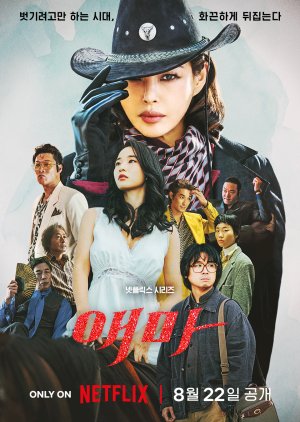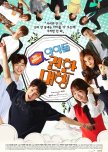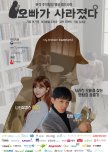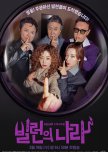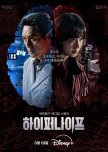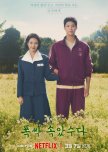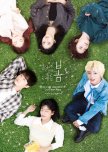A Missed Opportunity in Storytelling and Satire
The series arrives with immense potential, positioning itself as a dark satirical drama inspired by the entertainment industry. Unfortunately, what could have been a bold and unsettling exploration of the industry’s hidden layers ends up feeling hollow and underwhelming.The story tries to straddle fiction while drawing from real events, but in doing so, it loses its edge. If the intent was to remain faithful to real incidents, that would have been acceptable; however, as a fictionalized take, it promised the freedom to dive deeper into the industry's secrets, power struggles, and moral compromises—territory it largely avoids.
The supposed “darkness” is conspicuously absent. Instead of exposing the underbelly of the industry through nuanced perspectives—be it the director’s creative struggles, the producers’ profit-driven mindset, or the audience’s voyeuristic appetite—the show merely scratches the surface. Both male and female perspectives could have been explored, but remain untouched.
The inclusion of sex scenes feels forced and ineffective. They neither serve the narrative nor push boundaries, yet still manage to provoke unwarranted outrage. If anything, the drama needed more courage to embrace its themes rather than shy away from them.
What I Expected:
Complex, morally ambiguous characters painted in shades of grey.
A genuine industry expose, highlighting behind-the-scenes dynamics.
Deeper character arcs, especially for the director and writer.
A fearless depiction of every department in production and their motivations.
What We Got:
A shallow narrative with wasted potential.
On the technical side, the production values are decent but far from extraordinary. Acting performances suffer as well—largely because underdeveloped character arcs and weak writing leave the actors with little room to showcase their talent.
Verdict:
Despite its premise, this series is a squandered opportunity. With stronger writing and more daring storytelling, it could have left an impact. Instead, it settles for mediocrity. Not worth your time.
Was this review helpful to you?

This review may contain spoilers
Ambiguous premise with lackluster execution
When I came across Aema, I got pulled in by its female centered plot and the 80s aeshetic. I haven't seen many kdramas that address the topic of female exploitation in the film industry so I immediately decided to give Aema a try.The first episodes were interesting enough to make me continue watching. Although I wouldn't describe the drama as a pure comedy, there were some funny moments which toned down the dark plot. The scene on episode 4 where Hee-ran pointed out at Kwak In-U how ridiculous the script for "Madame Aema" was had me roling on the floor. As the story went on, the series became more serious and I got more immersed in the cruelty of the film industry. Some elements were obviously presented in an unrealistic way and some behaviors were caricatures. But the overall message is more than clear.
The drama tackles various themes but ultimately, the heart of the series was the presentation of women's exploitation by the film industry in the 80s. Since they worked in a male dominated field (as if there are many women dominated fields in the first place), actresses were made to get stripped of their dignity, unless they wanted to fall into oblivion. They had to succumb to the producers' wishes and do as they were told to, pose as the trophies of rich patrons in extravagant banquets...In Hee-ran's words, women needed to become bitches in order to survive.
The acting was great, especially from the two main leads. It was the first time I watched anything with Lee Ha Nee and it certainly won't be the last. She was absolutely captivating and captured Hee-ran's bold character perfectly. She commanded the screen with her confidence and wild determination and shaped Hee-ran into a strong woman. But that wasn't all of it. Hee-ran might have hidden under the facade of a proud, bitchy actress but she carried too much shame and pain. After being exploited for years, she wanted to keep Ju-ae away from the claws of the film industry by pushing her away and belittling her. Although she appeared to care very little about her co-star, she truly wanted to do the best in order to protect her and she wouldn't hesitate to clash with the producer in order to do so.
Alongside the magnificent Lee Ha Nee, Bang Hyo-Rin delivered an equally excellent performance. Having a real rookie actress embody the role of a rookie actress was a bold move by the writers and Bang Hyo-Rin did not disappoint. Shin Ju-ae, a nightclub dancer, dreamt of escaping her life and becoming an actress like Hee-ran, whom she looked up to. Determined to achieve her goal and not let Hee-ran's dismissal to discourage her, Ju-ae (who was oblivious of the lengths of female exploitation), did everything she was told by the producers. She did her erotic scenes without questioning their purpose, she didn't care about her sexualization and she went as far as to help the producer film the provocative scenes without having to censor them and she was overall an obedient rookie actress, who wanted to achieve success through her first film.
The contrast between the two female leads was what made them clash in the first place. Ju-ae was willing to give up her dignity for the sake of the film and she remained naive to the dangers of the industry and the lengths a woman would cross in the name of fame. Because of her innocence, the producer sent her to entertain the government officials who would than the '88s Olympics, in order to gain their favor and make them allow the filming of the movie "Madame Aema". And this is the moment Ju-ae's fantasy about showbiz was shattered.
Hyo-rin portrayed Ju-ae's disgust and fear perfectly. I could tell just by her expressions how distressed Ju-ae was. The scene where she had to sit with the President made me want to puke. I liked how the tone of the series changed once Ju-ae got exposed to the cruelty of the film industry. It became darker and bolder. The scenes deliberately evoke discomfort and even though they didn't delve into more details, they presented the dark side of an industry that treated women like mere objects.
One aspect that I liked was how the series portrayed the differences between Koo Jung-ho and Kwak In-U, the producers of " Madame Aema". The first is an unapologetic misogynist, who doesn't hesitate to make bold sexist comments and who openly objectifies women while the latter, although tamer, hides his desires under a layer of artistry (because after all, even he thought according to his d*ck). It was interesting to see the subtle hypocrisy because even though they were different in terms of how they approached the movie and the eroticism it evoked, both of them were unable to take into consideration the point of view of the female characters. The power imbalance between them was interesting too, since In-U had to succumb to Jung-ho's wishes and allow his ideas to be bastardized in order for the film to become successful.
Ultimately, what defined Aema was the relationship between Hee-ran and Ju-ae. Although the two women did not start off on the right foot, they eventually bonded over their common experience of being paraded as common objects in order to satisfy powerful men's desires. After their encounter in the government's official's party, the two women grew closer. Ju-ae got to understand Hee-ran and the way she tried to protect her while Hee-ran understood that Ju-ae's hard life was what motivated her to become an actress, in an attempt to escape poverty. Their shared passion for acting and their common treatment shaped them into a powerful duo. I must add that the writers clearly intended to give a subtle queer tone in their relationship, which is evident from the scenes where Erika, portrayed by Hee-ran, protects Aema, portrayed by Ju-ae.
The production design of the drama was very good. The settings were rich and accurate enough and the outfits capture the retro vibes of the 80s. Under the vibrant and joyful colours, however, laid the dark world of the entertainment industry and no amount of extravagant dresses, hairstyles and makeup could hide it (as Ju-ae herself realised).
No matter how much one can try, you cannot turn a blind eye on the mistreatment of women in the series. Aema does not shy away from showing the lengths of abuse of power, sexism and objectification, which continue to happen even after all of these years. The drama really makes you wonder how far women were willing to go for the sake of fame and a life that promised them a rich and comfortable lifestyle. The catalyst of this tragedy was the death of Mi-na, Jung-ho's girlfriend who was a young actress in search for her own path in the industry. Although her role was small, it serves as the heavy reminder of what happens to many young actresses who wanted to become famous. Her mistreatment from the younger VIPs which resulted to her own death was by far one of the most uncomfortable and darker moments in Aema and it almost brought me in tears.
Although Aema's intentions were good, I must say that for a drama that wanted to bring attention to the darker side of the industry, it did it in a shallow way. I expected the writers to go into more depth about what is happening behind-the-scenes and go even more in-your-face. I think that they played it quite safe which is not necessarily bad but I'm afraid that by trying to balance the social commentary with some funnier and lighter bits, the message was kinda lost in translation. Either they should have gone all in or stick in subtlety.
I am also quite disappointed at the way the relationship between Hee-ran and Ju-ae was handled. Their bond is one of the most prominent elements, there is no doubt for that but the story should have highlighted it even more. Instead of having so many scenes between the male executives, the drama should have given more scenes between the two women in order to establish their bond and shared feelings even more. I'll be honest with you, it was clear that no woman was involved in the writing and directing of the series because unfortunately, the plot retained some male-cendric aspects that robbed us from seeing more of the women themselves. I would have also liked to see more of Hee-ran's character. She was very interesting to watch but I feel like I didn't get to see much of her feelings, especially concerning her exploitation and anger towards the patriarchal society.
The premise of Aema was very ambiguous and I deeply respect the messages it wanted to convey. The problem is that because of its length (6 episodes only), the execution lacked depth. I feel like we saw everything from the surface instead of getting a deeper view of the matter. And to be frank, the pacing did not do much favour to the story. Had the drama been longer, I'm afraid that I wouldn't have finished it as quickly as I did.
Last but not least, I feel that the ending did not give a satisfactory conclusion. It felt a little bit rushed and it left some issues unfinished. It's unclear whether Hee-ran can work on her next project or not and it's a pity we didn't get to see more of the public's opinion about the expose of the male producers.
All in all, I'm happy for giving Aema a try. It was not a masterpiece but it was a good attempt to bring more attention to the cruelty of the entertainment industry. It was a rollercoaster of emotions and although the drama itself did not become a favourite of mine, the issues it addressed deeply moved me and brought much food for thought.
Was this review helpful to you?

ONCE UPON A TIME IN CHUNGMURO
Madame Aema (1982) is a landmark in South Korean cinema. Released during Chun Doo-hwan’s authoritarian “3S Policy” era (Sports, Screen, Sex), it boldly tested the limits of censorship while becoming a commercial hit.Set in South Korea during the early 1980s, Aema follows the high-stakes world of Korea’s first erotic film, charting the journey of a seasoned star and an ambitious newcomer as they navigate a male-dominated industry rife with censorship.
Lee Hanee shines as Jung Hee-ran, a celebrated actress desperate to escape her sex symbol image, clashing with the manipulative producer Ku Jung-ho and director Kwak In-woo. Bang Hyo-rin’s Shin Ju-ae brings fire as a determined newcomer, whose ambition eventually leads her to forge an unexpected alliance with Hee-ran against systemic exploitation.
Visually, the series bursts with kaleidoscopic colors and audacious fashion, a stark contrast to the era’s typically somber portrayals. It foregrounds women’s solidarity while exposing the hidden suffering forced under patriarchal norms. Yet its message is paradoxically conservative: sexual desire is largely vilified, and only one character’s transactional sex is punished. The show favors energetic vignettes over historical accuracy, leading to caricatured characters and uneven tones, but it remains stylish and entertaining.
In essence, Aema is visually dazzling, thematically bold, and enjoyable, though its message and narrative clarity are somewhat muddled.
Was this review helpful to you?
MASTERPIECE!!
Watched this for Lee Hanee. She is so pretty I love her so much and the series is really good.Aema isn’t your usual fast paced kdrama and I think that’s the point. It depicts the struggle of women finding their voice in a male-dominated world. I get why people with the attention span of a tiktok scroll might find it boring but if you sit with it, there’s so much depth and intention in every scene. It’s more of an artistic reflection than just entertainment.
The acting, the coloring, the aesthetics and visual tone are amazing.
Was this review helpful to you?

A STORY NOT FOR EVERYONE
Aema begins with a good start, immediately drawing viewers into its world with an authentic recreation of 1980s. The costumes, make up, sets, music, and cinematography capture the decade with eye catching detail, immersing the audience in a retro atmosphere that feels both rich and convincing.Beneath its polished aesthetic, this show delivers a sharp critique of the entertainment industry. It sheds light on the objectification of women and the way films (porn in particular) of the era were often created primarily for the male gaze. Most of the male characters are depicted as exploitative and corrupt.
At the heart of the drama is Hee ran, portrayed with depth and intensity by Lee Ha Nee. Her performance is layered and commanding, showing Hee ran’s vulnerability as well as her quiet strength.
One of the most memorable moments comes with the line “You will have to be a bitch from now on, because bitches survive.” This peace of dialogue is iconic captures the central theme of the drama, women protecting women.
What makes Aema unsettling is that while it’s fictional story, it’s believable. The events in the drama could have happened in the 80s or could even happen today. That possibility makes it disturbing to watch. The plot is told in simple and conservative way but that works for the story. It doesn't need crazy twists to be effective. It ends in a satisfying way. Not only wraps up Hee ran's story but also highlights the corruption, misogyny, and exploitation that actresses went through.
A drama that's both beautiful and powerful. A visually rich and emotionally unsettling drama that balances style with substance, leaving a lasting impression.
Plot 8.5/10
Acting and Characters 9.5/10
Cinematography 9/10
Writing 9/10
Pacing 10/10
OST/Score 8/10
Overall 9/10
Was this review helpful to you?

strong impression
this is a slightly heart felt drama that tells a story of two female actresses in a show business, one retiring and the other one starting. the soul of the drama is definitely lee hanee. without her, this drama simply wouldn't work. my only complaint is that the drama should've been even more female centered. honestly, these men were pissing me off big time. this drama def isn't for people who romanticise entertainment industry, and expect pure take. overall, it left really strong impression on me, and I'm glad that I gave it a shot.Was this review helpful to you?
This review may contain spoilers
Springtime in Seoul; the comedy of soft porn and the dictatorship
A soap-bubble of a story about the beginnings of the erotic film industry in Seoul. 2025, kdrama, 6eps x 50mins ea = 5 hrs watchtime.A young director/scriptwriter (Jo Hyun Chul under a mop of hair) struggles to create a viable commercial script for an erotic movie in a country where erotica was suddenly possible. In 1981 a 20-yr dictatorship (by then) decided to lift a 37yr old curfew, midnight to 4 am, so showing adult-only movies became possible. Chun Doo Hwan, the surviving henchman of Park Chung Hee (assassinated in 1979) was promoting a bread-and-circuses program of sports, sex and the screen.
The process and consequences of producing and shooting the very real 1982 blockbuster movie Madame Aema are the scaffolding of the series. The actual film is refracted in this series rather than fully represented. The director channeling Emmanuelle (french novel and various films) originally lards the script with semi-solitary sex acts. The star actress Jung Hee-ran, played by Honey Lee, comically remarks that the lack of motivation for those acts presents an obstacle to an actress' interpretation. In Su, the director, after their conversation, eventually decides to go with a Japanese surrealism-concept instead (thus getting around the motivation problem) and to use simpler relationships.
Hee-ran's contractual feud with the producer has led to her being cast in only a supporting role. The story of the ingenue actress Shin Ju Ae (played by Bang Hyo Rin, who gets the part of Aema) is the backbone of the series. The central relationship is between these two women. Not director - actress, not producer - actress, but actress to actress. Hee-ran tries to warn off Ju-Ae from the profession, berating and belittling her. But when Ju Ae is nearly pimped out to the dictator, Here-ran has a revelatory moment. She sides with Ju Ae not out of kindness or feminine loyalty or friendship, but because she suddenly realizes how much of herself she has given away -- too much. The two eventually are creative and courageous.
Somehow I was reminded of Springtime for Hitler (Mel Brooks' The Producers) when puzzling over the tone of presenting the Chun Doo Hwan administration comically -- after all the Gwanjiu uprising was in May of 1980, only16 mos. before the successful Olympic bid for the 88 Olympics was announced on Sept 30, 1981, which is where the series' action begins. The regime's persecution didnt feel as funny for me as it should have, but that may be me. I read somewhere that under an oppressive regime cinema can only portray private life so politics becomes metaphor. There were/are plenty of metaphors available in this show. It is my feeling that it will merit a rewatch.
ps. in the comments some seemed not to understand that the regime arrested tortured and killed people at will during most of the 80's. Too young to know, I suppose. Well, sometimes things are so bad it is better to laugh than cry, and that doesn't require age to understand.
Was this review helpful to you?
What a cheesy way to show a soft porn film under a disguise of social commentary
I watched ep 1 because I saw the trailer with the glorious actress and her fashion etc and I wanted to see more of that. I only suggest she gets her teeth white. Otherwise, what a beauty.Then the actress in bra and panties a lot came on screen and they started shooting a soft porn film and it was ... well ... cheap..... and then I was fast forwarding through the series because it was just a cheesy cheep soft porn..... and I was going to write about that and quit.
So my commentary at that point was - ah, koreans are now making american series!!! just sex and violence and decadence and not much content... wow ... yeah it makes $$$$$$ I can see why they are doing that...
Is this also trying to increase the birth rate? So many dramas advertise having kids and getting married... is this porn series a way to make people more inclined to reproduce? But then I was thinking - this inspires cheap sex, not having families and babies... the american audience sees only stuff like this and white people are NOT reproducing enough they will be a minority by year 2035 or something like that. Only BROWN people are reproducing enough....
And I was thinking to myself, I watch kdramas because they have MEANINGFUL content. Why waste time showing the decadence of the entertainment world... ???
As you can see, my attitude was "this is waste of time". As I came here to write a review and drop the drama, I read the reviews and realized that there is a social and political significance to this drama, despite all of its cheesiness. The commentary here said how this was actually a part of real life when the Korean dictator decided to have a few hours of night tv ok for adult movies. So then I made sure to watch a lot of ep 5 and the entire ep 6.
And yeah all that is to be expected. THose things are NORMAL in the entertainment industry unfortunately and also in many other businesses, like ... sales, politics, corporate business, and anything else...
Sexism and female exploitation at home and at work is sooo common...
So there was no need to make a soft porn drama of 5 hours just to show that atempt at rebellion and social change.
It was positive the actresses stood for themselves...
but did they? The movies the new one had at the end were all soft port movies... she stayed in the sex industry
and the older one decided to go for the real art.
Overall - I dislike this drama. as I said, there is NO reason to show 5 hours of soft porn just to give the message that actresses and women in general get exploited at work and how hard it is to stand up for themselves.
THERE ARE A LOT BIGGER ISSUES TO TALK ABOUT.
for example, in the USA, a male actor is paid literally tens of millions of dollars, and I think the highest paid lead actress was like $500,000. Something like that.
I think numbers are also skewed in pay to sportspeople.
In the USA in ANY JOB, a woman still makes 70cents for every 1 dollar that a male makes, i.e. she is paid 30% less than him, for equal qualifications and the same job.
THESE ARE THE THINGS TO TALK ABOUT AND SHOW AND DISCUSS
The thing that matters is the bottom line. Let's talk about that.
Not some bombastic scandalous cheesy porn and pervs
FYI ... for all those who have issues with sexuality - go outdoors, play some sports or do something physical, spend time running or swimming in sunlight, eat some healthy food, laugh, sing, dance, do some yoga, do some tai chi, do some gardening, walk barefoot in the woods, .... just be ALIVE and RADIANTLY VIBRANT and your sex life will automatically be regulated to normal.
Go barefoot and enjoy being alive. Breathe. Smile. Drink water.
Americans are too used to seeing cheesy as normal and that is super unhealthy. It $ell$ for sure but ... if kdramas become like that kind of trash too...... it will be th death of kdramas. Just my opinion.
Was this review helpful to you?
you will not miss much if you do not watch it
The drama was decent—not great, but not bad either. The story was truly fascinating and eye-opening, especially because it's based on real events. It's a sad truth that the themes it explores are still so relevant today, showing how people often have to pay a high price for fame.The acting was great, with Jung Ho delivering a standout performance. He truly nailed the character, making him a personal favorite.
I found the storyline about friendship to be particularly well-done, highlighting the struggle to survive in an industry where, especially back then, women were often seen as objects. The show did a good job of trying to expose a terrible side of society, but it's disheartening to see that so little has changed. It feels like no one cares; everyone is still driven by power or money, and people blindly believe what the tabloids write, which continues to destroy lives.
Despite having only six episodes, the pacing felt slow, and I found myself losing focus. Honestly, if I hadn't watched it, I don't think I would have missed much.
Was this review helpful to you?
Took me by surprise
Look at the comments and reviews. This show has inspired everyone to try to write like pompous film critics, like when viewers of cooking shows started to drop words like 'umami'. That tells you its different to most of what we see from Korea, there's a serious artistic and narrative attempt which you may or may not like but it's certainly got you thinking. Others wish there was more nudity and sex. More? These people are literally represented in the show (by the reporter in the theatre).Personally, I enjoyed it. I have never seen this calbre or tone of work from Korea. Its visually beautiful (that's sometimes a criticism I'll get to in a minute) but what stood out is the writing, acting and unusually, the sound design. People rarely rate sound design but here its so good it stands out.
I'm not going to pick out an actors performance. They were all exceptional. Even the vile antagonist manages to be truly loathsome but understandable at the same time. The young actress has impressive depth, and Honey Lee, well I'll make an exception and call out Honey Lee because she owns the screen here. It's a tour de force and she's becoming one of my favourite actors. The criticism is the visual texture. Graded to look like its Golden Hour all the time, over saturation and low contrast, the PD or DoP seemed to be unsure if they were going for something surreal and artistic or gritty and historic. They tried to blend Wes Anderson with Tarantino and I'm not sure that's the right direction to have taken.
I recommend the show. Its only 6 episodes and its worth your time.
Was this review helpful to you?
This review may contain spoilers
An ode to female solidarity
This movie has actually surprised me quite a but ngl! It had a lot of nudity and sex which I have never seen so much of in KDramas so far 😂 and shockingly, it was set in the 80s??? I feel like people were wilder back then than they are today it seems.In general I really liked the setting of the 80s in the drama. Since watching Reply 1988 this era has interested me a lot about Korea and its history.
The main theme of the drama is misogyny and the exploitation and objectification of women especially in the entertainment society. I am sure that the traumatic things we saw that happened to the young women in this movie are definitely not something that only happened in the 80s in Korea (the P.Diddy case for example is still very recent).
I loved so much how the two female actresses turned from enemies to besties in this movie.
Also, because this drama is all about female solidarity we had no attractive male leads that played the love interest of the women, obviously since the women were just so sick of all the men objectifying them and treating them badly that they just gave up on falling in love with them.
I did hope that there would be more of a romantic connection betweenJu-Ae and her friend who looked like a guy (tbh I still think they were in love with each other and was wishing for them to kiss at the end when she runs after her car).
And then, the scene where Ju-Ae rescues Hee-Ran on her horse was EPIC!!!! (sadly the traffic cgi was kinda lame 😅).
I definitely liked this drama a lot and totally fell in love with the main actress who played Hee-Ran omg who is that woman? I definitely gotta watch more of her dramas!
Was this review helpful to you?

Worth It For Ha Nee
Aema is a witty, refreshing take on the making of Korea’s first erotic film, blending satire with sharp social commentary. Instead of being exploitative, it cleverly flips the gaze—showing how women navigate sexism, ambition, and agency in the 1980s film industry. The humor lands well, the pacing is brisk, and the ensemble cast—especially Lee Ha Nee—brings both charisma and depth. It’s light in tone yet layered in meaning, making it one of the most surprising and entertaining period dramas of the year.Was this review helpful to you?

 1
1 1
1